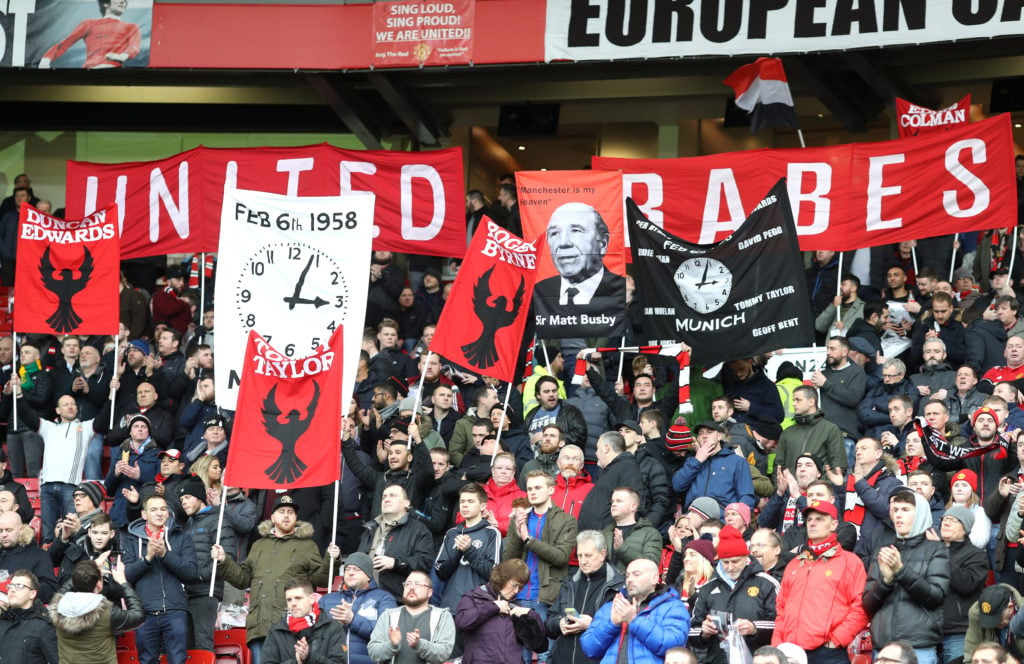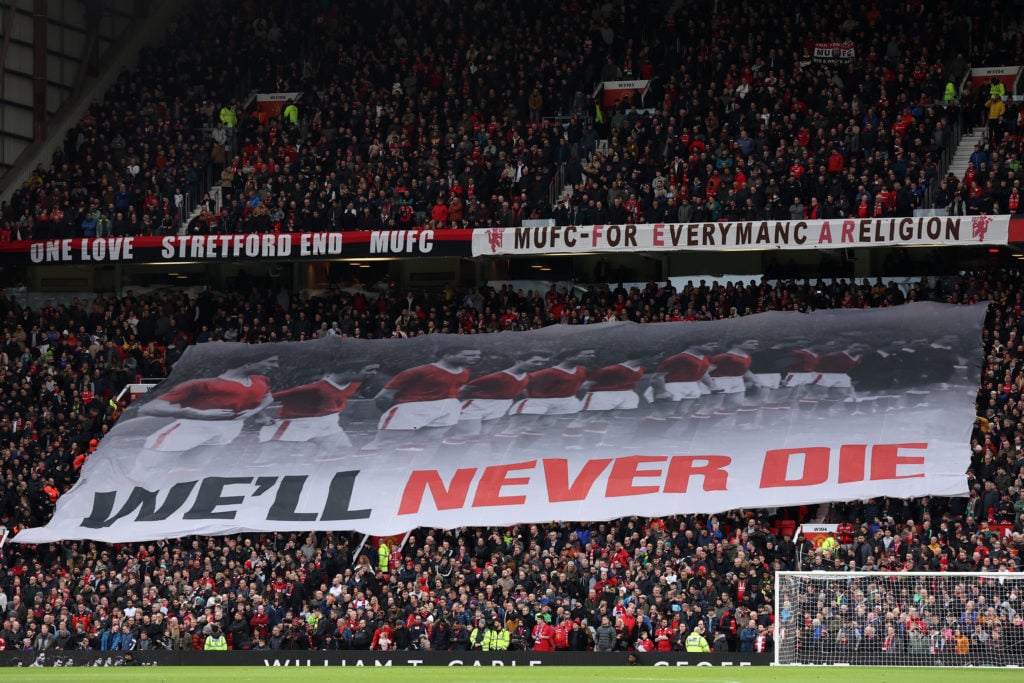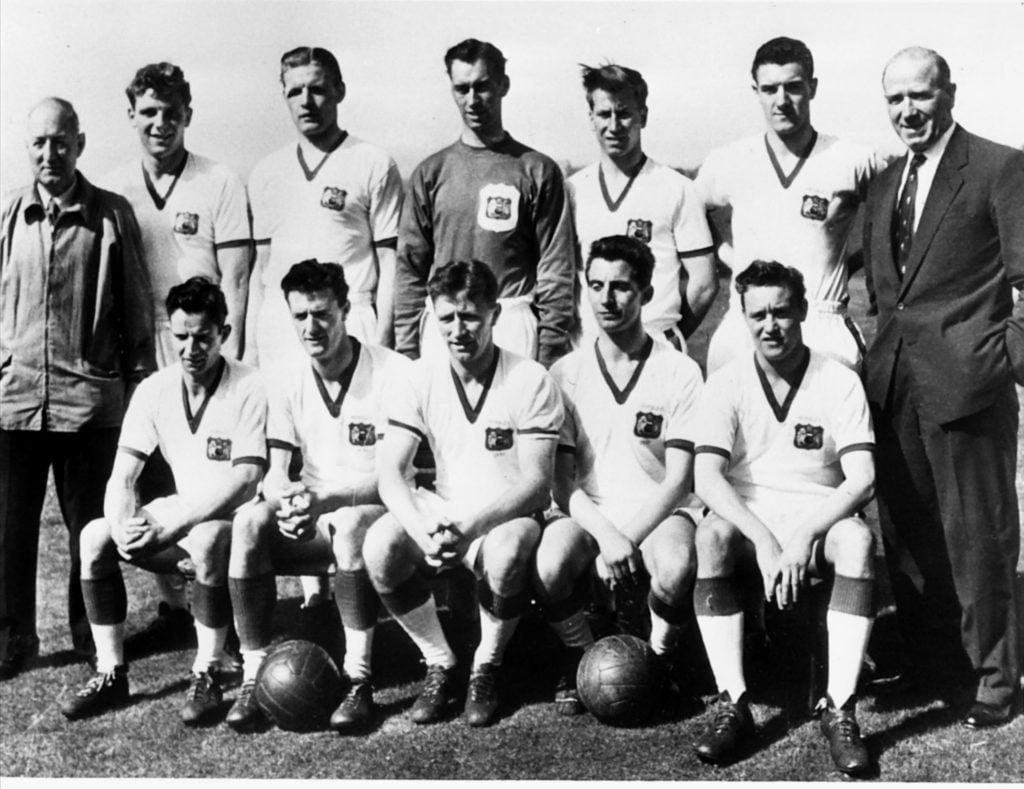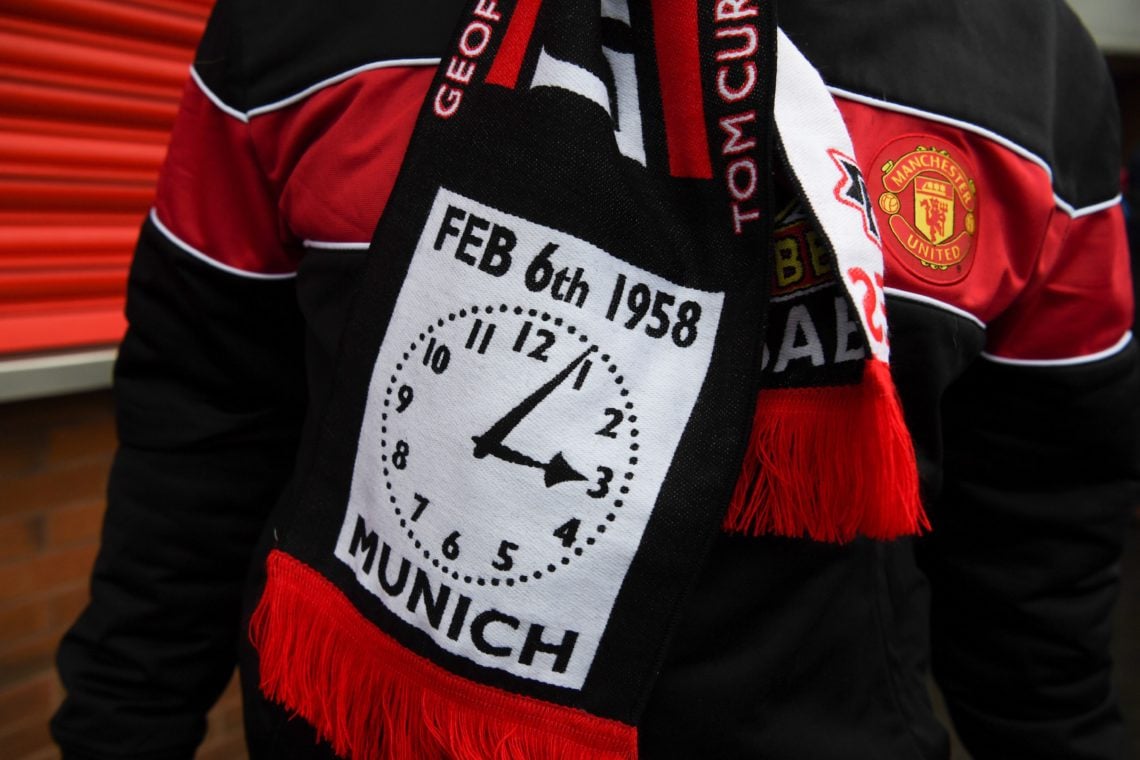February 6 2024 marks 66 years to the darkest day in the history of Manchester United Football Club.
In 1958 a plane transporting the Manchester United players back from a European Cup game in Belgrade, crashed on the runway in Munich.
The plane had stopped to refuel in Germany, as a single trip was beyond the capability of the aircraft used to to undertake the trip. 20 on board were killed at the scene, with a further three perishing from their injuries in hospital.
Among the fatalities were eight Manchester United players, among them the very finest of their generation.
There were tales of heroism too, with survivors Harry Gregg and Bobby Charlton among them, with the latter going on to win the World Cup in 1966 and European Cup in 1968.
At the heart of rebuilding United from tragedy was legendary manager Matt Busby, who like Charlton, would later be honoured with the title ‘Sir’.
Having experienced the personal anguish of seeing friends and colleagues peril, and his own injuries, Sir Matt Busby’s achievements to rebuild Manchester United help make the club what it is today, and no man has ever been as deserving as he is, of having a statue outside Old Trafford.

Munich tributes 2024
The Munich air disaster will be marked at the weekend when Manchester United play West Ham at Old Trafford.
The Mail report: “A fan led pre-match service will be held under the Munich clock outside the ground from 12pm, before commemorative events take place 10 minutes prior to the 2pm kick-off, including the laying of wreaths”.
“Flags will also fly at half-mast and players will wear black armbands. United are asking fans to arrive early to ‘pay their respects’”.
A memorial service will also be held at Old Trafford on Tuesday February 6 at 2pm, with a minute’s silence at 3.04pm, the time of the crash 66 years ago.

Munich 1958: The eight Manchester United players who died
Eight Manchester United players lost their lives in the tragedy, among them, many of the finest footballers the club and country has ever seen, all aged under 30, in the prime of their careers.
Tommy Taylor, age 26
Striker Tommy Taylor had a goalscoring record any forward would be envious of. He struck 131 goals in 191 games for Manchester United, with a career best 34 goals in the title winning 1956/57 season.
He was a force to be reckoned with for England too, netting 16 in 19 games for the Three Lions. United signed Taylor from Barnsley in 1953. He was a powerhouse of a forward who was made for the era he played in, one of the best strikers the country has ever produced.
Roger Byrne, age 28
Manchester United’s captain was a full-back who came through the club’s academy who won three league titles for the club in the 1950s.
Byrne played 280 games for United, scoring 20 times, and also made 33 appearances for England. Tragically he died without knowing his wife was pregnant, and she gave birth to their child eight months later.
Billy Whelan, age 22
Billy Whelan was a Republic of Ireland international striker who joined United as a teenager. He went on to score 52 goals in 98 games for the club, winning two league titles.
Eddie Colman, age 21
Eddie Colman was another talent whose career was just getting started, he was the youngest to die in the disaster at 21 years and three months. He came through the club’s academy and made 108 appearances for the club in midfield.
Mark Jones, age 24
Jones made his United debut at 17, and went onto make 120 appearances, scoring once. The two-time league winning centre-back was called up by England, but never got as far as making his international bow.
David Pegg, age 22
David Pegg was another Busby Babe who made his debut at 17, also winning the title twice. The winger was capped once by England, and scored 28 goals for Manchester United in 150 games.
Geoff Bent, age 25
Geoff Bent was a utility player who made just 12 appearances for United, and yet was still regarded highly by Busby. He did not play at all in the season leading up the disaster due to injury, only travelling as cover for Roger Byrne, who was dealing with his own fitness problems in the lead up to the game in Belgrade.
Duncan Edwards, age 21
Duncan Edwards was regarded by those lucky to have seen him play as the greatest footballer England has ever produced. He broke an English football record to make his United debut at just 16, and racked up 150 appearances for the club, including 12 in the European Cup.
Edwards could do it all, playing in defence or midfield, and played 18 times for England, scoring five times. He was expected to play a big part at the 1958 World Cup. He won two titles with United in ’56 and ’57.
His death was the final one from the disaster. He fought fiercely for his life, dying 15 days later in hospital from injuries sustained in the crash.

Picture caption: Back row: Tom Curry, Duncan Edwards, Mark Jones, Ray Wood, Bobby Charlton, Bill Foulkes, Matt Busby. Front row: John Berry, Bill Whelan, Roger Byrne, David Pegg, and Eddie Coleman.
There were 15 more lives lost in the tragedy, bringing the total to 23 dead.
- Captain Kenneth Rayment: Co-pilot
- Tom Cable: Steward
- Bert Whalley: Manchester United chief coach
- Walter Crickmer: Manchester United secretary
- Tom Curry: Manchester United trainer
- Frank Swift: Journalist and former Manchester City goalkeeper
- Alf Clarke: Journalist
- Donny Davies: Journalist
- George Follows: Journalist
- Tom Jackson: Journalist
- Archie Ledbrooke: Journalist
- Henry Rose: Journalist
- Eric Thompson: Journalist
- Bela Miklos: Travel agent
- Willie Satinoff: Friend of Matt Busby and Manchester United supporter
